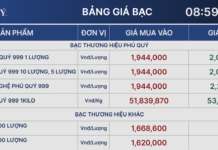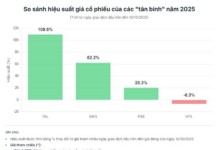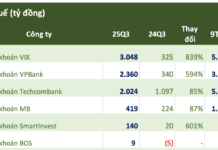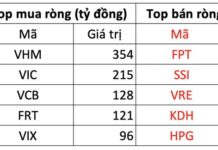On May 17, Vietnam Economic Magazine/VnEconomy, in collaboration with Moody’s Ratings and VIS Rating, hosted a workshop on “Developing the corporate bond market towards 2030: A credit rating perspective.”
Speaking at the workshop, Dr. Chu Van Lam, Editor-in-Chief of Vietnam Economic Magazine/VnEconomy, shared that along with the country’s economic development, the capital market and financial services have been constantly improving in terms of structure and scale, playing a crucial role in mobilizing resources for investment and development.
The corporate bond market has emerged as an efficient medium to long-term capital mobilization channel for enterprises, helping them balance their capital sources and reduce over-reliance on bank credit. During the period of 2018-2021, the corporate bond market witnessed remarkable growth, especially in terms of issuance volume, with an average annual growth rate of about 45%.

[Live] Workshop: “Developing the Corporate Bond Market towards 2030: A Credit Rating Perspective”
However, according to Dr. Chu Van Lam, despite improvements, the corporate bond market has not met expectations and still faces certain limitations and challenges. These include issues related to information transparency, compliance with legal regulations by bond-issuing enterprises, fulfilling commitments to investors, and the economy’s continued difficulty in absorbing capital…
“According to the Ministry of Finance, the main causes of these challenges are investors’ cautious psychology in the face of global economic and political instability and the less positive outlook, as well as issues of trust and domestic market liquidity,” shared Dr. Chu Van Lam.
Additionally, the corporate bond market has been impacted by investors’ confidence, which has been affected by the misconduct of some recently penalized enterprises, as well as unverified news and misinformation spread by certain unofficial media outlets, leading to a rush of investors selling their bonds, even in enterprises with good production and business performance.
There has also been a trend of banks encouraging savers to switch from deposit accounts to purchasing corporate bonds. Moreover, the focus of inspections and supervision on monitoring the purpose of bond issuance has created concerns among both bond-issuing enterprises and service providers…
“To promptly rectify the situation, the government has implemented synchronized solutions, including reviewing and improving the legal framework, strengthening management and supervision, and actively providing information and propaganda to restore market confidence,” said Dr. Chu Van Lam.
To gradually restore and develop the corporate bond market in line with international practices, the authorities have affirmed their commitment to continuing the stable and healthy development of this market, avoiding a boycott of corporate bonds and preventing a situation where investors demand early redemption or repurchase of bonds en masse. Along with this are long-term solutions to ensure that this market remains an important channel for capital mobilization for enterprises.
“However, to achieve the goal of increasing the scale of the bond market to a minimum of 25% of GDP by 2030, there is a need for mechanisms to attract truly attractive long-term investments,” emphasized Dr. Chu Van Lam.
In this regard, the Ministry of Finance has suggested that enterprises consider utilizing auditing, credit rating, and asset valuation services to assess their production, business, and financial situation. By doing so, enterprises can proactively and timely disclose official information to investors, enhancing transparency and gradually promoting bond issuance for capital mobilization.
Emphasizing this goal, Dr. Chu Van Lam highlighted that the collaboration between Moody’s Ratings, VIS Rating, and Vietnam Economic Magazine/VnEconomy in organizing the workshop on “Developing the Corporate Bond Market towards 2030: A Credit Rating Perspective” aims to share international experiences and their applicability to Vietnam. This is a step towards achieving the goal of increasing the scale of the corporate bond market to a minimum of 25% of GDP by 2030.




































